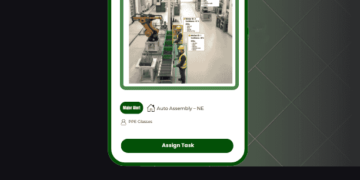Introduction
When it comes to conveyor systems, many businesses quickly realize that a standard solution isn’t always the best solution. In industries where speed, efficiency, and accuracy are crucial, a cookie-cutter conveyor system can become more of a bottleneck than a benefit. That’s where custom conveyor systems come into play. They’re not just a luxury — they’re often a necessity.

The Limitations of Off-the-Shelf Conveyor Systems
Pre-made conveyor systems can work fine for basic, low-volume operations. But as soon as your business scales, introduces unique materials, or requires specific processes, these standard systems start to fall short.
Here are some common challenges with generic conveyors:
- Mismatched capacity: Too slow for high-volume operations or too fast for delicate items.
- Improper sizing: Doesn’t fit into your facility layout, causing workflow issues.
- Lack of flexibility: Hard to modify when your needs evolve.
- Maintenance struggles: Standard components may not integrate with existing machinery or be easy to replace.
These limitations often lead to downtime, inefficiencies, and even safety risks.
The Case for Custom Conveyor Solutions
A custom conveyor system is designed with your specific workflow, materials, and goals in mind. Whether you’re handling fragile electronics, heavy automotive parts, or food-grade products, a tailored solution ensures seamless operations.
1. Tailored to Your Workflow
Every facility has its own flow — materials come in one way, get processed, then go out another. Custom conveyors are built to fit this flow perfectly. They consider:
- Floor space and layout
- Number of workstations
- Product direction and orientation
- Integration with other machines
By aligning the conveyor with your exact process, you reduce manual handling, improve safety, and boost efficiency.
2. Built for Your Materials
Different products require different handling. For example:
- Fragile items may need soft-touch rollers or padded belts.
- Heavy items may require reinforced frames and motorized drives.
- Food products may need hygienic, stainless steel designs.
Custom solutions ensure your conveyor can handle your materials safely and efficiently, reducing damage and waste.
3. Scalable and Future-Ready
Businesses evolve. A custom conveyor can be designed with future upgrades in mind — like adding new lines, automating further steps, or increasing speed. Modular designs and plug-and-play technology make it easier to adapt without a complete overhaul.
4. Safety-First Engineering
Customized systems are built with your workforce in mind. From emergency stops to guard rails, enclosed systems, and sensor integration, these conveyors prioritize operator safety and compliance with industry regulations.
Real-World Applications
Let’s look at a few examples:
- E-commerce warehouses: Custom sortation conveyors improve order accuracy and speed by adapting to irregular product sizes.
- Food processing plants: Hygienic, easy-to-clean designs prevent contamination and reduce downtime for sanitation.
- Pharmaceutical manufacturing: Custom conveyors control environmental conditions and ensure traceability and accuracy at every stage.
What to Expect When You Go Custom
A reputable conveyor solution provider will:
- Assess your current process and goals
- Design a system tailored to your space and needs
- Build using high-quality, durable materials
- Test and install with precision
- Provide support, training, and maintenance guidance
This collaborative approach ensures that your conveyor system becomes a reliable part of your production line, not a pain point.
Final Thoughts
In today’s fast-paced and specialized industries, one-size-fits-all just doesn’t cut it. Investing in a custom conveyor solution isn’t just about having the latest tech — it’s about creating a smarter, safer, and more scalable operation.
If you’re struggling with inefficiencies, equipment breakdowns, or simply want to future-proof your production line, it might be time to think custom.



















